Processing Your Payment
Please do not leave this page until complete. This can take a few moments.
- News
-
Editions
View Digital Editions
Biweekly Issues
- December 1, 2025
- Nov. 17, 2025
- November 03, 2025
- October 20, 2025
- October 6, 2025
- September 22, 2025
- + More
Special Editions
- Lists
- Viewpoints
-
Our Events
Event Info
Award Honorees
- Calendar
- Biz Marketplace
Q&A: Seafood industry expert sees lots of potential in food accelerator program
 Courtesy / Blue Lobster Consulting
Emily Lane, president of Blue Lobster Consulting LLC on Vinalhaven, joined Maine Center for Entrepreneurs’ Food Accelerator Team.
Courtesy / Blue Lobster Consulting
Emily Lane, president of Blue Lobster Consulting LLC on Vinalhaven, joined Maine Center for Entrepreneurs’ Food Accelerator Team.
The Maine Center for Entrepreneurs in Portland recently recruited Emily Lane, president of Blue Lobster Consulting LLC on Vinalhaven, to its Food Accelerator Team, serving as the seafood and aquaculture specialist.
Joining Food Accelerator Team members Sue Hanson and Janine Cary to support companies interested in scaling up profitability and market reach, Lane brings expertise to the growing number of seafood and aquaculture clients in MCE’s Cultivator and MarketShare food accelerator programs. She will recruit and work with additional Maine-based seafood and aquaculture businesses, facilitate webinars and help attract mentors with seafood/aquaculture industry experience to MCE’s Maine Mentor Network. Accelerator members are expected to benefit from new national and local business networks through Lane’s participation. Her hire was made possible through funding from FocusMaine.
Lane is a business development, marketing and networking specialist with over 30 years in the seafood and aquaculture industry. She has worked in sales and marketing for four Maine seafood processing companies, managing multi-stakeholders and complex initiatives, and has served on the board of the Maine Lobster Marketing Collaborative and Maine Lobster Dealers Association. She participated in the Gulf of Maine Research Institute’s seafood sustainability project, is a member of the Maine International Trade Center and currently chairs the Island Institute board of trustees.
Mainebiz asked Lane about changes she’s seen in the seafood industry and her outlook for the future. Here’s an edited transcript.
Mainebiz: What was the impetus for starting Blue Lobster Consulting?
Emily Lane: I have considerable experience in and knowledge of the seafood and aquaculture industries in Maine. I am passionate about seafood from Maine and felt it was important to continue to be involved with emerging Maine businesses and nonprofit organizations.
MB: Could you provide an example of that work?
EL: I have been working on developing seafood toolkits and educational webinars for Food Export USA–Northeast [a nonprofit cooperative of Northeast agriculture and promotion agencies and the U.S. Department of Agriculture’s Foreign Agriculture Service]. The toolkits provide basic information on Northeast seafood products for foreign buyers and in-market representatives all over the world. The educational seminars and webinars facilitate international trade and often focus on market trends and new product development.
MB: What do the toolkits consist of?
EL: The American lobster toolkit includes a history of the industry, best practices, regulations and information about sustainability and about the different product forms that are available. I did the same thing for Jonah crab. We’re currently working on an oyster toolkit and a scallop toolkit as well.
MB: Who uses these kits?
EL: Food Export USA has a number of in-market representatives in different locations throughout the world, who hold promotional activities and attend trade shows. They use these toolkits to educate foreign buyers and promote Northeast seafood products.
MB: How did your relationship with Maine Center for Entrepreneurs develop?
EL: I’ve been a mentor with them since May and I was approached in July to begin working with the Food Accelerator Team, focusing on seafood and aquaculture.
MB: How do you recruit companies?
EL: I’ve contacted a number of small companies and offer to visit them either in person or virtually to further our discussions. I’ve also reached out to our partner economic development organizations, such as CEI, the Department of Economic and Community Development, Gulf of Maine Research Institute, Maine Aquaculture Innovation Center, Maine Center for Coastal Fisheries, Maine Lobster Marketing Collaborative and Maine Technology Institute to share our recent expansion of services to the seafood/aquaculture industries in Maine.
I’m hoping to significantly expand the portfolio of seafood and aquaculture businesses, as well as to create additional jobs in Maine seafood and aquaculture.
MB: Once you’ve made contact with companies, how do you help them?
EL: I’ve reached out to companies to either encourage them to enroll in the Cultivator program, which offers strategic resources and tools to scale up their business, or the MarketShare program, which helps Maine food and beverage companies expand regionally and nationally, with targeted marketing. Many of the companies have gone through the Top Gun program and are now ready to take the next step from early to mid-stage growth and then to expanding distribution. I can also provide them with resources for feedback on new products, market trends, market viability and retail and food service distribution.
MB: Are you seeing a lot of potential in the seafood industry?
EL: I see a lot of growth in the number of aquaculture farms in Maine. I think a lot of traditional fishermen are beginning to see this as an additional revenue stream. In the seafood industry we’re seeing processors looking to develop new products. With the focus now so much on retail and e-commerce because of COVID, there are a lot of diversifications of product offerings and development of more convenience products. People love the sustainability story and they love knowing where their product comes from. I think that’s something the seafood and aquaculture companies in Maine do well.
MB: Are you optimistic about the industry’s future?
EL: I’m hoping we can work through some of the issues currently facing the industry — the right whale regulations and offshore wind. We’re always dealing with trade issues, and transportation both domestically and internationally has been challenging.
But I’m optimistic. The industry has always been able to adapt to challenges. I think that companies are nimble enough to be able to make adaptations. We saw that during COVID, when food service became almost nonexistent in terms of supplying restaurants and hotels. But the industry pivoted to retail, to more domestic sales and to e-commerce very successfully. I’m optimistic that the seafood and aquaculture in Maine will continue to grow and thrive.
About Maine Center for Entrepreneurs
Established in 1997, the Maine Center for Entrepreneurs’ mission is to build and lead growth-oriented businesses in Maine, by providing the training, connections, coaching and mentors they need to commercialize and grow their ideas, products and services. The organization has accelerated the growth of hundreds of businesses, and established a mentor network of over 200 members. In the food and beverage industry. MCE has served over 85 food industry companies. MCE is a partner of the FocusMaine agriculture strategy that includes several partner organizations.
About Maine’s seafood industry
The seafood industry is one of Maine’s key economic drivers. Maine ranks second in the U.S. for employment in fish and fishing products, coming in behind Alaska. The 2020 catch was worth over half a billion dollars.
Maine is the nation’s leading producer of lobster, with 96 million pounds brought to market in 2020. A growing aquaculture industry includes salmon, oysters, mussels, sea vegetables and other species.
With the right support, Maine is well positioned to expand into new markets with approximately 70 million consumers located in the Northeast within same-day distribution.
Source: Maine Center for Entrepreneurs
Mainebiz web partners
Related Content

The Giving Guide
The Giving Guide helps nonprofits have the opportunity to showcase and differentiate their organizations so that businesses better understand how they can contribute to a nonprofit’s mission and work.
Learn More
Work for ME
Work for ME is a workforce development tool to help Maine’s employers target Maine’s emerging workforce. Work for ME highlights each industry, its impact on Maine’s economy, the jobs available to entry-level workers, the training and education needed to get a career started.
Learn More
Groundbreaking Maine
Whether you’re a developer, financer, architect, or industry enthusiast, Groundbreaking Maine is crafted to be your go-to source for valuable insights in Maine’s real estate and construction community.
Learn more-
The Giving Guide
The Giving Guide helps nonprofits have the opportunity to showcase and differentiate their organizations so that businesses better understand how they can contribute to a nonprofit’s mission and work.
-
Work for ME
Work for ME is a workforce development tool to help Maine’s employers target Maine’s emerging workforce. Work for ME highlights each industry, its impact on Maine’s economy, the jobs available to entry-level workers, the training and education needed to get a career started.
-
Groundbreaking Maine
Whether you’re a developer, financer, architect, or industry enthusiast, Groundbreaking Maine is crafted to be your go-to source for valuable insights in Maine’s real estate and construction community.
ABOUT
NEW ENGLAND BUSINESS MEDIA SITES
No articles left
Get access now
In order to use this feature, we need some information from you. You can also login or register for a free account.
By clicking submit you are agreeing to our cookie usage and Privacy Policy
Already have an account? Login
Already have an account? Login
Want to create an account? Register
Get access now
In order to use this feature, we need some information from you. You can also login or register for a free account.
By clicking submit you are agreeing to our cookie usage and Privacy Policy
Already have an account? Login
Already have an account? Login
Want to create an account? Register
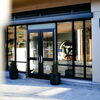

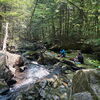
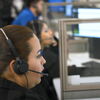

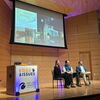



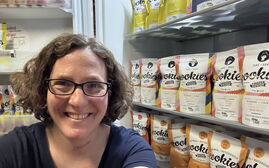

0 Comments